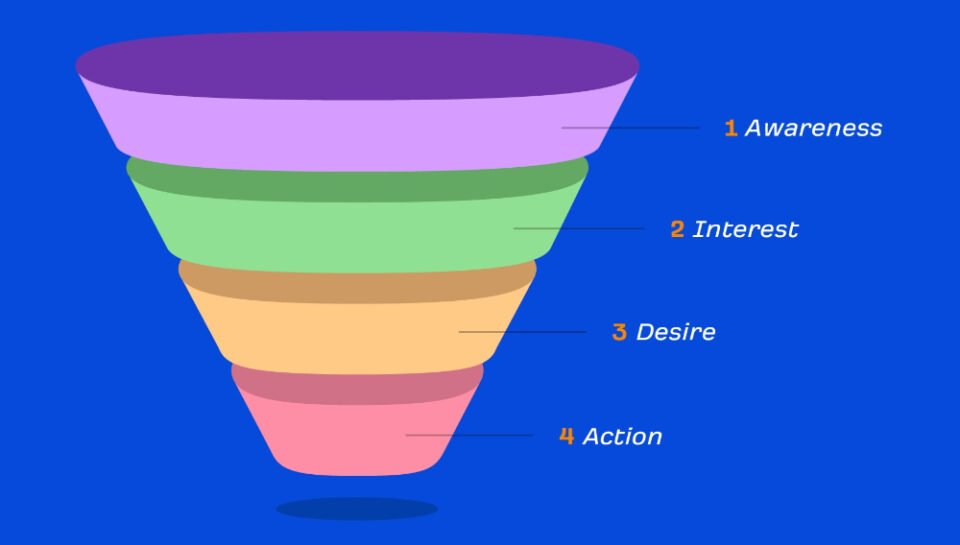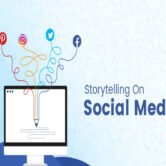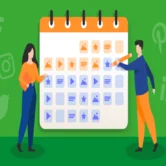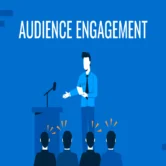
Detail the structure of a marketing funnel in digital platforms
Introduction
The marketing funnel is a foundational model used in digital marketing to describe the journey a customer takes from awareness to conversion and beyond. This structured approach helps marketers understand where potential customers are in their buying process and tailor content, campaigns, and communication to meet their specific needs. Digital platforms have enabled a more dynamic and data-driven funnel, where user behavior can be tracked and influenced at each stage. A well-structured digital marketing funnel allows brands to optimize engagement, maximize conversions, and build lasting relationships.
Awareness stage for brand discovery
At the top of the funnel lies the awareness stage, where potential customers first learn about a brand or product. The goal here is visibility. Digital marketers use content marketing, search engine optimization, display advertising, social media campaigns, influencer partnerships, and video ads to capture attention. The objective is not to sell immediately but to introduce the brand and highlight its relevance to a problem or interest. Metrics such as impressions, reach, and traffic are typically used to gauge success in this stage.
Interest stage for educational engagement
Once awareness is established, users enter the interest stage. Here, they begin exploring content that provides more information about the product or service. Marketers provide value through blog articles, webinars, newsletters, infographics, and downloadable resources. Retargeting ads and email opt-ins also play a significant role. The focus is on educating the audience and positioning the brand as a trustworthy source. Key performance indicators include time on site, bounce rate, email subscriptions, and content downloads.
Consideration stage for solution evaluation
In the consideration stage, potential customers are actively comparing solutions. They assess competitors, compare features, pricing, and reviews, and evaluate fit for their needs. Digital strategies include product comparison pages, case studies, testimonials, demos, and interactive tools such as quizzes or calculators. Marketers may segment and personalize messaging through email campaigns and targeted advertising. KPIs for this stage include demo requests, engagement with product pages, and retargeting click-through rates.
Intent stage for decision readiness
The intent stage represents a shift from research to decision-making. Here, users signal strong interest and are close to converting. Marketing tactics include offering limited-time discounts, free trials, consultations, or product guides. Email marketing automation and remarketing campaigns help nurture leads who have shown purchase intent—such as those who abandoned carts or returned to key pages multiple times. Conversion-optimized landing pages and clear CTAs are essential. Indicators include cart additions, sign-up completions, and return visits.
Evaluation stage for last-mile persuasion
Before making the final decision, users often conduct a final review. They may seek validation through peer reviews, comparison videos, or third-party endorsements. Marketers can facilitate this stage with user-generated content, social proof, FAQs, and detailed product documentation. Offering live chats or personalized consultations can also eliminate last-minute objections. This is the final checkpoint before conversion, and its effectiveness can be tracked by analyzing engagement on review pages, help centers, and support touchpoints.
Conversion stage for turning prospects into customers
This is the bottom of the funnel where leads convert into paying customers. A seamless and secure checkout process, mobile optimization, personalized offers, and a strong value proposition are essential here. The user experience must be frictionless to minimize drop-offs. Conversion rate optimization (CRO) tactics such as A/B testing and UX enhancements are critical. Metrics include purchase completions, subscription activations, and conversion rate by channel or device.
Retention stage for building long-term loyalty
Beyond conversion, the focus shifts to retention. This stage includes onboarding, post-purchase engagement, customer support, and personalized follow-ups. Digital tactics include thank-you emails, loyalty programs, helpful content, and user communities. Happy customers are more likely to return, subscribe, or upgrade. Retention metrics include repeat purchase rate, customer satisfaction scores, and churn rate. Maintaining engagement post-sale turns one-time buyers into loyal customers.
Advocacy stage for amplifying brand voice
Satisfied customers can become powerful brand advocates. The advocacy stage leverages this by encouraging referrals, reviews, testimonials, and social media sharing. Marketers can prompt advocacy through referral programs, user-generated content campaigns, case study participation, and rewards for reviews. Tracking mentions, shares, and referral conversions helps measure this stage’s impact. Advocacy not only builds credibility but also drives organic growth.
Funnel analysis and optimization for performance scaling
Every stage of the funnel should be continuously measured and refined. Funnel analysis tools like Google Analytics, HubSpot, and heatmapping software help marketers identify drop-offs and optimize each step. Marketers can test different content types, targeting strategies, and CTAs to increase effectiveness. A data-driven approach to funnel management enables better ROI and ensures that the marketing engine evolves with consumer behavior and market changes.
Conclusion
A structured marketing funnel is vital for guiding prospects from awareness to advocacy in a systematic and measurable way. Each stage—awareness, interest, consideration, intent, evaluation, conversion, retention, and advocacy—has specific objectives, tools, and metrics. Digital platforms enhance this process with real-time data, personalization, and multichannel touchpoints. By understanding and optimizing each stage, marketers can create seamless, relevant, and high-impact experiences that convert prospects into loyal brand champions. The marketing funnel is not just a model; it is a blueprint for sustained business growth in the digital age.
Hashtags
#marketingfunnel #digitalmarketing #customerjourney #awarenessstage #considerationstage #conversionoptimization #funnelstrategy #retentionmarketing #funnelanalytics #digitalconversion #brandadvocacy #onlinemarketing #salesfunnel #funnelmetrics #userexperience #funnelstructure #crmstrategy #marketingautomation #funnelpersonalization #contentstrategy #digitalgrowth #leadgeneration #conversionrate #customerretention #emailmarketing





